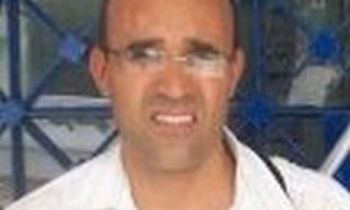Media rights groups have called for the end of the death threats against Ali Moallim Isak, a leader of the Somali journalists union after he received anonymous threatening telephone calls and two armed men went to search for him at the union office in the capital Mogadishu.

“We condemn these threats against Ali and express our solidarity with him and his colleagues working in this chaotic situation,†said Gabriel Baglo, Director of the International Federation of Journalists (IFJ) Africa office. “Ali and his colleagues are now targeted because their work disturbs some people who claim they are fighting for democracy but ignore the fact that press freedom is one of the bases of democracy.â€
“Mogadishu’s chronic violent crime makes journalists an easy target,†Reporters sans Frontières (RSF) said. “NUSOJ has continued to work to defend the press, despite a wave of killings in which seven journalist have died since the start of this year. The government should adopt urgent protective measures to show that it wants to retain what is currently one of the country’s best assets.â€
Two gunmen went to the NUSOJ office in Mogadishu Monday morning and asked to see Isak, the secretary for organisation, who was absent at the time, RSF reported. They went off and questioned several shopkeepers in the neighbourhood about Isak’s habits. At around midday, a man called and threatened to kill him if he did not cease his activities, adding that he knew where he lived and worked.
At the time of the gunmen’s visit, Isak had gone to see journalist Abdihakim Omar Jimale of privately-owned Radio Mogadishu, who was shot and wounded by unidentified gunmen on August 10. The day after the attack on Jimale, the head of privately-owned Radio Capital Voice, Mahad Ahmed Elmi, was shot and killed as he was going to work. A few hours later the same day, Ali Iman Sharmarke, the head of privately-owned HornAfrik radio, was blown up by a bomb that had been placed underneath his car.

In the past few months, Mogadishu’s intellectual and media elite has been the target of a wave of killings that has accompanied the almost daily attacks on Ethiopian troops or the forces of the transitional federal government.
According to NUSOJ the specific reason why Ali is threatened is unknown. “We will continue monitoring and investigating attacks on press freedom in Somalia,†said Omar Faruk Osman, Secretary General of NUSOJ.
According to NUSOJ, 13 journalists have fled Mogadishu with the aim of seeking refuge in Kenya, which is the safest neighbouring country. But 10 of them are currently stuck at the border because Kenya has restricted visas for Somalis for security reasons.
IFJ has called on the Somali government to protect Isak and ensure that he is not threatened or subject to violence. “The Somali authorities, the African Union, the UN and other international groups should make journalist safety a priority,†Baglo said. “We do not want to see another one of our colleagues in danger simply for doing his or her job as a journalist or media professional.â€









